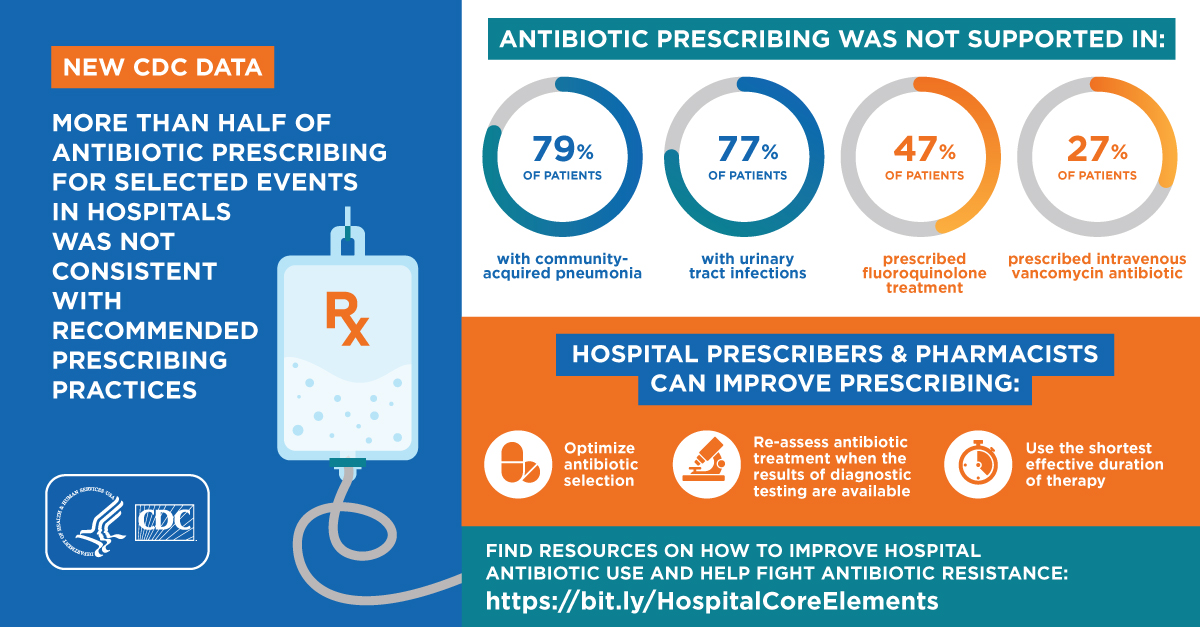Improving the use of antimicrobials is an important patient safety and public health issue as well as a national priority. A growing body of evidence demonstrates that hospital Antimicrobial Stewardship Programs can optimize the treatment of infections and reduce adverse events associated with antibiotic use, such as Clostridioides difficile infection.
In 2014, the Centers for Disease Control and Prevention (CDC) recommended that all acute care hospitals implement Antibiotic Stewardship Programs, publishing the Core Elements of Hospital Antibiotic Stewardship Programs. The Core Elements document identifies key structural and functional aspects of effective programs. The seven core elements are:
- Leadership Commitment: Dedicating necessary human, financial, and information technology resources
- Accountability: Appointing a single leader responsible for program outcomes. Successful programs have found that a physician leader is effective
- Drug Expertise: Appointing a single pharmacist leader responsible for working to improve antibiotic use
- Action: Implementing at least one recommended action, such as systemic evaluation of ongoing treatment need after a set period of initial treatment (i.e. “antibiotic time out” after 48 hours)
- Tracking: Monitoring antibiotic prescribing and resistance patterns
- Reporting: Regular reporting information on antibiotic use and resistance to doctors, nurses and relevant staff
- Education: Educating clinicians about resistance and optimal prescribing
Page last reviewed and updated: October 2024

